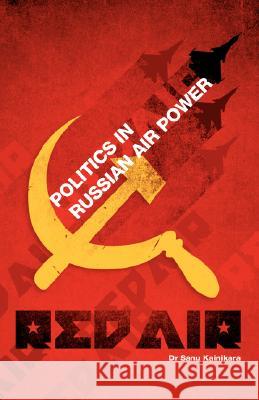Red Air: Politics in Russian Air Power » książka
Red Air: Politics in Russian Air Power
ISBN-13: 9781581129830 / Angielski / Miękka / 2007 / 384 str.
The pursuit of national security is normally dominated by an overeaching ideology that takes into account the political, economic, social and military paradigms that face a nation. In the history of the Soviet Union this ideology was more than normally influenced by political activism that demanded the continuation of the 'Workers' Revolution' into other parts of the world. Since the military forms an integral part of the governmental apparatus, its utilisation in the pursuit of securing national security is considered a legitimate and normal action. The Soviet Union built up the world's largest military force in an effort to ensure that the nation would have the necessary 'super power' status to counter-balance the growing power and influence of the United States of America. The ideologies of both the nations were diametrically opposed to each other and formed the basis for the now defunct Cold War that enveloped the entire world for five decades. It is therefore, not surprising that the military forces of both sides were influenced heavily by the respective ideologies. This book looks at the development of the Russian concept of air warfare and studies the impact of ideology on its development. It is seen that in the Soviet Union ideology had thwarted free flowing doctrinal thinking, the absolute cornerstone for the building of a strong and efficient fighting force. An analysis of the factors that have affected the formulation of doctrine in the Soviet Union, both from a historic as well as from a war-fighting point of view, reveals the lacunae that existed in the system. While accepting that political control of the military forces is a necessity, the study demonstrates the detrimental effect of excessive control of doctrinal and strategic thinking on the performance of the force.
The pursuit of national security is normally dominated by an overeaching ideology that takes into account the political, economic, social and military paradigms that face a nation. In the history of the Soviet Union this ideology was more than normally influenced by political activism that demanded the continuation of the Workers Revolution into other parts of the world. Since the military forms an integral part of the governmental apparatus, its utilisation in the pursuit of securing national security is considered a legitimate and normal action. The Soviet Union built up the worlds largest military force in an effort to ensure that the nation would have the necessary super power status to counter-balance the growing power and influence of the United States of America. The ideologies of both the nations were diametrically opposed to each other and formed the basis for the now defunct Cold War that enveloped the entire world for five decades. It is therefore, not surprising that the military forces of both sides were influenced heavily by the respective ideologies. This book looks at the development of the Russian concept of air warfare and studies the impact of ideology on its development. It is seen that in the Soviet Union ideology had thwarted free flowing doctrinal thinking, the absolute cornerstone for the building of a strong and efficient fighting force. An analysis of the factors that have affected the formulation of doctrine in the Soviet Union, both from a historic as well as from a war-fighting point of view, reveals the lacunae that existed in the system. While accepting that political control of the military forces is a necessity, the study demonstrates the detrimental effect of excessive control of doctrinal and strategic thinking on the performance of the force.











